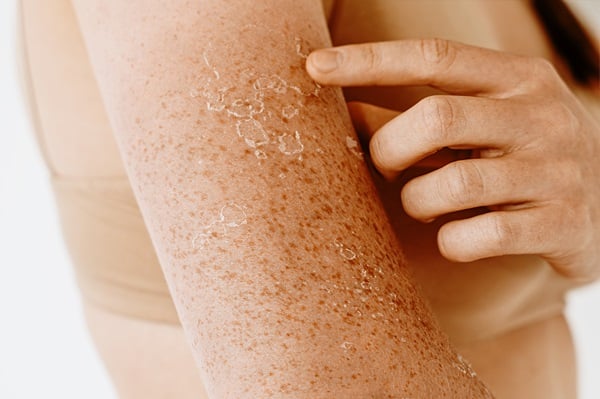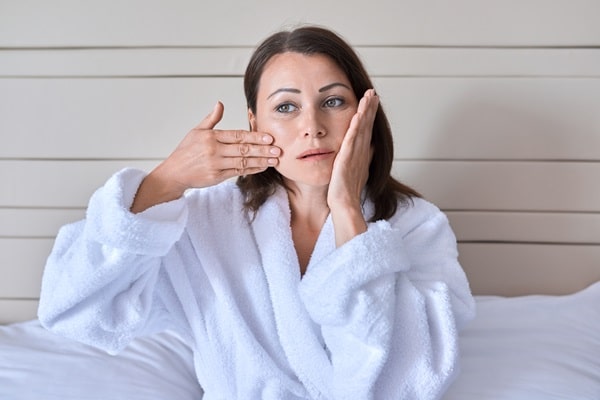Humidity, a common atmospheric condition, profoundly impacts the environment and human health, particularly skin health. As the body’s largest organ, skin is incredibly sensitive to changes in humidity, affecting its hydration, elasticity, and overall condition. This article delves into how varying humidity levels affects your skin, discussing both the beneficial and detrimental effects. It aims to provide a comprehensive understanding, guiding readers to protect and optimize their skin health according to different environmental conditions.
Contents
- 1 Understanding Skin’s Structure and Function
- 2 Positive Effects of Humidity on Skin
- 3 Negative Effects of Low Humidity
- 4 Adverse Impacts of High Humidity
- 5 Adjusting Your Skincare Routine for Humidity
- 6 Protecting Skin in Varying Environments
- 7 Humidity and Skin Health: Long-Term Considerations
- 8 Embrace Your Environment for Healthier Skin
Understanding Skin’s Structure and Function

The skin, a complex organ comprising multiple layers, serves as the first line of defense against external elements. The outermost layer, the epidermis, provides a barrier protecting internal tissues from pathogens, UV rays, and water loss, while the underlying dermis houses nerve endings, sweat glands, and hair follicles. Beneath these, the hypodermis contains fat and connective tissue, cushioning and insulating the body. Each layer plays a pivotal role in overall health, and understanding these functions is key to comprehending how humidity affects the skin.
Within the skin’s layers lie mechanisms that regulate temperature and moisture, crucial for maintaining homeostasis. The skin’s ability to retain water is vital for its elasticity and pliability. However, the external environment, particularly humidity levels, can disrupt these natural processes, leading to various skin issues. By maintaining the integrity of the skin’s structure and functions, one can ensure better protection against the ever-changing humidity conditions.
Positive Effects of Humidity on Skin

In environments with moderate humidity, the skin thrives, maintaining its moisture and elasticity. This optimal level of humidity aids in keeping the skin’s surface hydrated, reducing the appearance of wrinkles and fine lines. Adequate moisture also supports the skin’s natural barrier function, protecting against pathogens and pollutants. The result is a smoother, healthier complexion that is more resilient to external stressors.
Besides surface hydration, humidity promotes better circulation and nutrient delivery to the skin. Increased blood flow ensures that skin cells receive essential nutrients and oxygen, enhancing overall skin health. This environment facilitates the natural shedding of dead skin cells and the rejuvenation of the skin surface, leading to a radiant, youthful appearance. Consequently, maintaining balanced humidity levels is integral to achieving and sustaining healthy, vibrant skin.
Negative Effects of Low Humidity

Low-humidity environments pose significant challenges to skin health, leading to dryness, irritation, and accelerated aging. In such conditions, the skin struggles to retain moisture, resulting in a tight, flaky complexion. This dehydration compromises the skin’s barrier function, making it more susceptible to irritants and infections. Prolonged exposure to dry air can exacerbate skin conditions like eczema and psoriasis, intensifying discomfort and inflammation.
Beyond immediate dryness, prolonged exposure to low humidity can accelerate the aging process. As the skin loses its elasticity and moisture, fine lines and wrinkles become more pronounced. The lack of adequate hydration disrupts the skin’s ability to repair itself, leading to a dull, aged appearance. Understanding the detrimental effects of low humidity is crucial for implementing effective skincare strategies to combat these challenges.
Adverse Impacts of High Humidity

Conversely, high humidity can lead to an overproduction of oil and sweat, creating a breeding ground for bacteria and exacerbating skin conditions such as acne. The increased moisture in the air hinders the skin’s natural evaporation process, leading to clogged pores and a shiny, greasy complexion. This environment is particularly challenging for individuals with oily or acne-prone skin, as it amplifies issues related to excess sebum and breakouts.
The sticky and uncomfortable feeling associated with high humidity also encourages frequent skin touching and wiping, potentially introducing more dirt and bacteria to the skin’s surface. Additionally, the moist environment is ideal for fungal infections, which can manifest as various skin disorders. It is, therefore, imperative to adjust skincare routines and products to effectively manage the challenges posed by high humidity, maintaining a clear and healthy complexion.
Adjusting Your Skincare Routine for Humidity

Adapting your skincare routine to different humidity levels is crucial for maintaining skin health. In low humidity, focus on hydration by using products that contain humectants like hyaluronic acid, which draws moisture into the skin, and occlusives that create a protective barrier to prevent water loss. It’s also beneficial to incorporate gentle exfoliation to remove dry, flaky skin and allow better absorption of moisturizers. Conversely, in high humidity, prioritize lightweight, non-comedogenic products that won’t clog pores and opt for gel-based moisturizers that provide hydration without adding excess oil.
Beyond product selection, consider the frequency and application of skincare treatments. In dry conditions, you might increase the use of hydrating masks and overnight treatments to boost moisture levels. In contrast, in humid climates, reducing the use of heavy creams and increasing cleansing can help manage excess oil and sweat. Always remember to adjust your skincare routine gradually and pay attention to how your skin responds, as everyone’s skin reacts differently to environmental changes.
Protecting Skin in Varying Environments

Effective skin protection goes beyond the bathroom vanity; it extends to how you manage your living and working environments. Indoors, using a humidifier in dry climates or a dehumidifier in damp conditions can help maintain a consistent, skin-friendly atmosphere. Additionally, air conditioning can be a useful tool in regulating temperature and reducing excessive humidity. However, be mindful of overuse, as air conditioning can also strip the air of moisture, leading to dry indoor conditions.
When venturing outdoors, your clothing can serve as a barrier between your skin and the environment. In sunny, humid conditions, wear loose, breathable fabrics to allow air circulation and prevent sweat buildup. Regardless of the weather, sun protection is non-negotiable; always apply a broad-spectrum sunscreen to shield your skin from harmful UV rays, which can exacerbate the effects of humidity-related skin issues. By taking these precautions, you can better protect your skin from the varying degrees of humidity encountered daily.
Humidity and Skin Health: Long-Term Considerations

Long-term exposure to unsuitable humidity levels can have lasting effects on skin health, leading to chronic conditions and premature aging. It’s important to recognize these risks and develop a consistent, adaptable skincare regimen. Integrating a balanced diet, adequate water intake, and regular exercise can also fortify skin health from the inside out, helping it better withstand the impacts of humidity. Antioxidants, either in diet or skincare products, can further protect the skin from environmental damage and aid in repair and rejuvenation.
Furthermore, consider the psychological impact of skin health; chronic skin issues can affect self-esteem and quality of life. Therefore, maintaining a proactive approach to managing your skin’s response to humidity isn’t just about aesthetics; it’s about overall well-being. Regular consultations with dermatologists or skincare professionals can provide personalized advice and treatment options, ensuring that you’re equipped to handle the humidity-related challenges that come your way, maintaining resilient and vibrant skin over time.
Embrace Your Environment for Healthier Skin
Understanding and adapting to the effects of humidity on your skin is not just a cosmetic concern but a vital aspect of overall health. This article has provided insights and strategies for managing your skin’s needs in varying humidity levels. Now, take the next step and assess your environment, adjust your skincare routine accordingly, and consult professionals when necessary. So embrace your environment and make informed decisions for healthier, more resilient skin.


